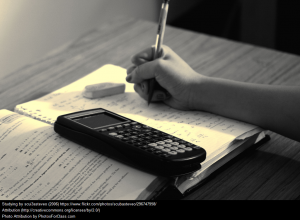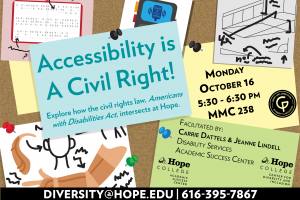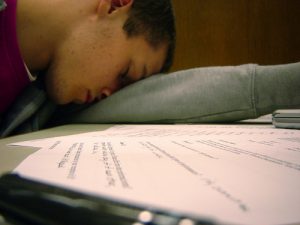Contributed by Allison Johnson ’18:
It’s a rare moment when I tell someone that I am a test proctor for the Academic Success Center and they know exactly what I mean.
“So you mean you stand up in front of dozens of test-taking students and sternly peer over your horned-rimmed glasses as you glare and shush them, ensuring that cheating doesn’t occur and sucking all the joy from the room?”

Nope. Here’s the process:
- Student comes to take exam at ASC. Yay exams!
- After they put their belongings down in the ASC office, I take them to one of two rooms just down the hall reserved for ASC test takers and remind them that if they have any questions for their professor about the exam to come back to my desk and we can get in touch with the prof.
- I head back to my desk in the ASC office and file any papers that need to be filed or send any emails that need to be sent.
- When the student is done with their exam or time is up, they will return it to my desk in the ASC office and head out, relieved to not have to devote mental space to that exam any longer.
- I stick the exam in an envelope and carry on my merry way to deliver the exam to the professor.
See, no glaring, shushing, or horn-rimmed glasses involved. It’s actually a positive experience! (Well, for me at least. I’m not the one taking the exam.)
One of my favorite parts about going to work are the connections I will likely make that shift. When I start exams, I get to hear a little about life from students of all years, majors, and backgrounds who make up Hope’s student body. Delivering finished exams across campus affords me the opportunity to interact with professors and office managers from every academic department. I feel that I have a better grasp of who the humans are that come together to make Hope College what it is.
The work I have the opportunity to accomplish as a test proctor is beautifully diverse. I am able to satisfy my love of organization by filing papers, sending emails, transferring information to spreadsheets, and keeping track of when to start/end exams. My social side gets engaged as well, whether I am talking with fellow students, ASC staff, or faculty and staff members around campus. Delivering exams means I get paid to take walks and soak in the beauty of campus (or, depending on the season, walk as fast as I can in my puffy parka to avoid hypothermia, which is an equally lovely experience). I often find myself with time to do homework (though don’t ask me how productively I use that time) and work on my own to-do list.
This is my fourth semester working as a test proctor in the ASC, making it my longest-standing on-campus job. I’m thankful for the opportunity to work with an office full of wonderful people whose dedication to students is so tangible.




